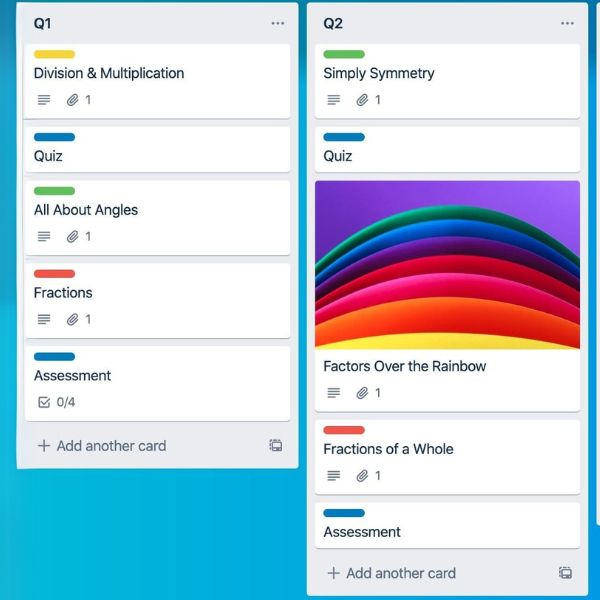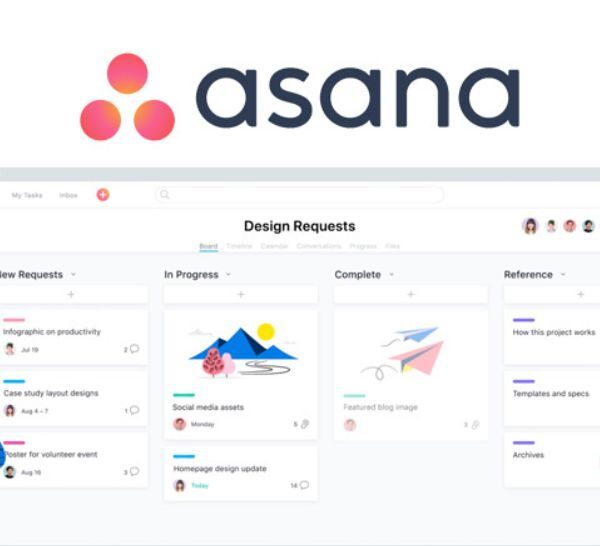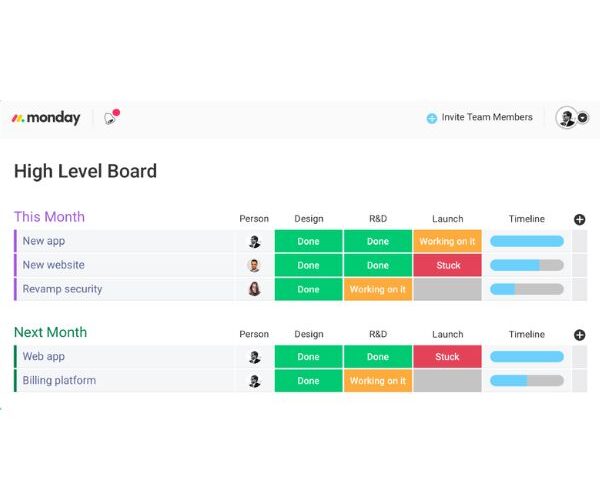Must-Know Project Management Tools for Small Business Owners
When you’re running a small business, staying organized is half the battle. From managing projects and tracking progress to keeping your team aligned, it can feel like a lot to juggle. That’s where project management tools come in—they simplify your workflow, help you stay on top of tasks, and keep everything moving smoothly. Here’s a rundown of some essential project management tools every small business owner should know about to make life a bit easier.

Trello
is a simple, visual tool that’s perfect for organizing tasks and projects in a way that’s easy to follow. With Trello’s user-friendly interface, you can create boards for different projects, which are then divided into lists that show task stages (such as “To Do,” “In Progress,” and “Done”).
Within each list, cards represent individual tasks or pieces of the project, making it clear what’s been done, what’s in progress, and what’s up next.
This setup is invaluable for business owners because it provides a bird’s-eye view of projects, making it easy to keep track of priorities and deadlines without feeling overwhelmed.
Each card in Trello can be customized with checklists, due dates, file attachments, and color-coded labels, allowing you to add as much detail as needed.
For instance, if you’re launching a new product, you can use cards to manage everything from product design to marketing efforts, each with its own checklist of tasks.
Trello’s flexibility makes it accessible for both solo operators and small teams. You can add team members to cards and lists, assign tasks, and set deadlines to keep everyone accountable.

For small business owners, this means they can easily delegate tasks, track team progress, and ensure that nothing falls through the cracks—all in one place.
Trello also offers automation through its “Butler” feature, which allows you to create custom rules and triggers to automate repetitive tasks, like moving a card to the “Done” list once all checklist items are completed. This is especially helpful for business owners who have a lot on their plate, as it reduces the need to micromanage and allows more time to focus on high-level strategy.

Asana
is another popular choice that offers a more feature-rich experience compared to Trello, making it ideal for businesses with complex projects that require detailed tracking and frequent updates.
In Asana, you can assign tasks, set due dates, and monitor project milestones, giving everyone a clear sense of who’s responsible for what.
With Asana’s timeline and calendar views, it’s easy to visualize project deadlines and dependencies.
For small businesses managing multiple projects simultaneously, these views help ensure projects are progressing as planned, keeping everyone on track with a visual map of priorities.
One of Asana’s standout features is its ability to manage dependencies between tasks, which ensures that team members are completing steps in the right order and nothing gets held up.
This is critical for small businesses with tight timelines, as any delay in one task can impact the entire project. Asana also offers templates for various types of projects, like marketing campaigns or product launches, making it easy to get started without building out complex workflows from scratch.
For business owners, this means they can focus on strategic planning instead of the intricacies of task management, knowing Asana is keeping everything organized and moving forward.
Monday.com
is a more robust project management solution that is ideal for small businesses needing to manage not only projects but also workflows, customer data, and team communication.
With its customizable templates, Monday.com adapts to a wide range of uses, whether you’re coordinating a product launch, managing a marketing campaign, or handling client communications.

The flexibility and customization options allow business owners to build workflows that align with their unique processes and goals.
What sets Monday.com apart is its integration with other popular business tools like Slack, Google Drive, and Dropbox, making it easier to streamline operations across different areas.
This means that teams can access files, communicate, and stay updated on project progress—all within the same platform. Monday.com’s powerful reporting and analytics tools also allow business owners to track project metrics in real-time, providing valuable insights that can drive better decision-making.
For a business owner, Monday.com simplifies the process of managing multiple departments or projects, keeping everything aligned and accessible from a single dashboard.
How These Tools Can Really Help a Business Owner
Each of these project management tools offers unique benefits for small business owners looking to stay organized, improve team productivity, and ultimately drive growth.
Trello’s simplicity and visual layout make it an ideal starting point for organizing tasks without the complexity of traditional project management systems.
Asana adds a level of sophistication, with features like dependencies and timelines, making it well-suited for businesses managing larger, collaborative projects that require careful coordination.
Monday.com provides the most comprehensive suite of features, allowing business owners to manage workflows, customer data, and project analytics all in one place.
Using these tools can help a business owner in several key ways:
Improved Organization and Focus: With clear task assignments, visual boards, and timelines, these tools provide a structure that keeps teams organized and focused on priorities, making it easier to meet deadlines.
Better Team Collaboration:
Tools like Asana and Monday.com support team collaboration with features that clarify roles, responsibilities, and due dates, reducing misunderstandings and helping everyone stay aligned.Efficient Use of Time and Resources: Automation features (like Trello’s Butler or Monday.com’s custom workflows) cut down on repetitive tasks, freeing up time for team members to focus on more strategic work.
Enhanced Accountability: By assigning tasks and tracking progress, these tools encourage accountability, ensuring that tasks don’t fall through the cracks and deadlines are respected.
Real-Time Insights: Analytics features in Monday.com and Asana provide business owners with data on project timelines, resource allocation, and team performance, allowing for data-driven decisions that improve efficiency and productivity.
